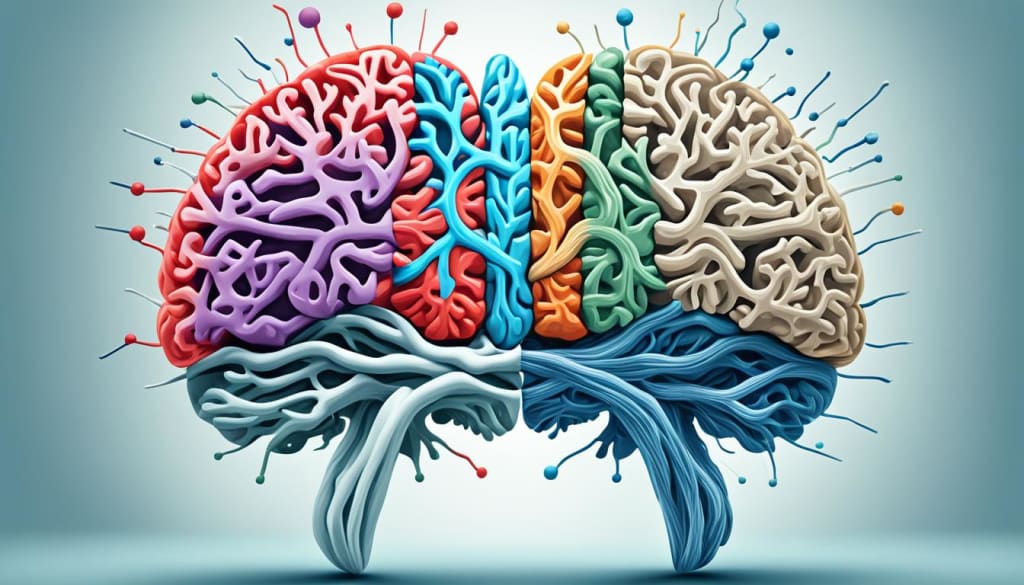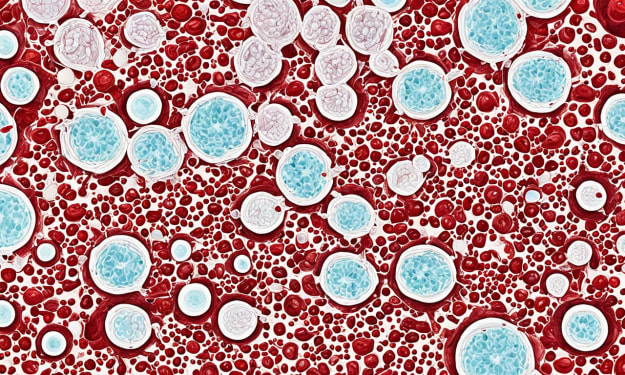What Makes Someone More Intelligent Than Others?
Behind Human Brain

Have you ever wondered what makes some people smarter than others? Intelligence is not just about how much you know. It's a mix of traits that allow you to plan, reason, and learn quickly. Tests like the Wechsler Adult Intelligence Scale (WAIS) measure this.
When looking at intelligence, one important thing stands out. People's intelligence tends to stay the same and affect their life choices. It helps with things like how much money they make, their education, and how good they are at their jobs. And guess what: a big part of how smart we are comes from our genes.
This means that if your family is pretty smart, you might be too. But, it's not just about what we inherit. Our environment also plays a big role. This includes things like the schools we go to and how our parents raise us.
Understanding Human Intelligence
Intelligence is hard to pin down, but tests like the WAIS aim to do just that. These tests look at speed, language, and more to give a general score. This score is called Spearman's g or IQ.
Defining Intelligence
Intelligence is more than just being smart. It's about planning, solving problems, learning fast, and making choices. Tests help measure this, showing how good someone is at thinking.
Measuring Intelligence with Cognitive Tests
The WAIS is good at figuring out how smart someone is. It's helpful because intelligence doesn't change much over time. And knowing how smart someone is can predict their success in school, work, and life.
Stability and Heritability of Intelligence
IQ scores tend to stay the same from childhood to old age. For example, a high score at 11 often means a high score at 90. Also, studies on twins suggest that intelligence is mostly inherited. Genes have a big say in how smart we are.
Does Brain Size Matter for Intelligence?
For a long time, people thought that a bigger brain means more smarts. Studies agree somewhat. They show a link between big brains and high IQ. But this connection is not as strong as we once thought. The size of your brain isn't the only thing that makes you smart.
The Brain Size Hypothesis
A big brain does matter for being smart, but it's not everything. How your brain is set up and how it works is key. The brain can change to get smarter, thanks to learning and experience.
Correlation Between Brain Volume and IQ
New technology lets us see inside brains using MRIs. We've found a small link between big brains and being clever. Brain size affects only about 2% of how well you do on tests.
Adding space to your brain might make you learn better a little faster. But what really makes a big difference in how smart you are? It's not just how big your brain is. There are lots of other important reasons why people do well on tests. It's about how your brain works, not just its size.Brain Areas Associated with Intelligence
Studies using brain imaging have identified specific brain regions linked to intelligence. The frontal lobe, especially Brodmann areas 10, 45-47, help with problem-solving, decision-making, and planning. The temporal lobe, on the other hand, plays a big role in language and memory. This makes it important for how smart we are.
There are also parts like parietal areas 39 and 40 that are key for IQ. They help with seeing how things work together and thinking about space. These discoveries show how intelligence is spread throughout the brain. Many areas work together for smart thinking.
Frontal Lobe Contributions
The frontal lobe is crucial for many smart tasks, including problem-solving and planning. Known as Brodmann areas 10, 45-47, these parts are key for higher-level thinking. They help us tackle hard mental challenges.
Temporal Lobe Contributions
The temporal lobe also plays a big part in how smart we can be. It supports language and memory, two things vital for our intellect. These functions help our mind work better overall.
Parietal Lobe Contributions
Parietal areas 39 and 40 are important for Figuring out how things fit together and working with a lot of data help boost intelligence. These areas are not only crucial but work with others for our brain to be smart.
Structural Brain Changes and Intelligence
The brain's structure is always changing, from birth through our lives. Changes in gray matter volume show how smart we might be. These brain changes link with learning, experience, and getting older.
Gray Matter Volume Changes
Learning new skills, like juggling, can change specific parts of our brains. This affects how we learn and remember. Also, differences between males and females, and changes as we grow older, play a big role in our intelligence.
Learning and Experience Effects
Our brains can shape and change with experience and learning. This is especially important for how smart we are. The connection between brain structure and intelligence shows that both our genes and what we learn matter a lot.
What Makes Someone More Intelligent Than Others?
Why are some people more intelligent than others? This question is not simple. It is known that both genetic and environmental factors play a significant part. These factors mix to create individual differences in cognitive abilities.
Genetic traits, like heritability of intelligence, matter a lot. They set the stage for how smart someone could be. Yet, what we experience in life is also key. Things like what we eat, how healthy we are, our family’s money situation, and the kinds of things we learn impact our intelligence. It's the combination of our genes and what we go through that really makes a person smart.
Genetic and environmental factors team up to make us smart. Our genes provide the starting plan for intelligence. But, it's how and what we live through that turns that plan into what makes us intelligent. It's by understanding both nature and nurture that we can figure out human intelligence's complex beginnings.
The Role of Genetics in Intelligence
Genes play a big part in how smart we are, with about 50% to 80% of intelligence tied to genetics. Studies with twins show this. The IQ of adopted kids is more like their biological parents than their adoptive parents.
Heritability of Intelligence
Finding specific genes for intelligence is tough. But, new genetic studies have found hundreds of genes that might be linked to IQ. Even though one gene doesn't do too much, together, these genes can affect IQ by about 10%. As we learn more, we'll better understand how our genes shape intelligence.
Identifying Intelligence Genes
Through genome-wide studies, scientists look for genes that affect IQ. A study with over 78,000 people found new genes involved in intelligence. Plomin and Deary's work highlighted five key genetic insights. Sniekers et al. also explored how genes impact intelligence in a widespread study.
Environmental Influences on Intelligence
Genetics is vital for intelligence. Yet, the environment also plays a big role in cognitive skills. Things like nutrition and health affect how our brains grow and work. For instance, not getting enough iodine as a child can lead to a lower IQ. But, improving this in poorer nations has shown to increase cognitive abilities. Also, getting rid of parasitic worms and reducing lead in gas has proven to lift cognitive performance.
Nutrition and Health Factors
Socioeconomic and family environments greatly shape how smart we are. The effects of a common family living space are small. However, unique life events can really make a difference in how smart we become. This shows why it's crucial to look at both genetic and environmental factors in our intelligence.
Socioeconomic and Family Environment
Issues like lack of nutrition early on, not enough micronutrients, and toxins can decrease a child's IQ by 15 points. A supportive home life and a kind vs. strict parent's approach play a part in IQ too. How well a mother and her child interact also really matters in a child's intelligence development.
Nature vs. Nurture: Interplay of Genes and Environment
There has been a long debate in psychology about intelligence and nature versus nurture. Genes give a starting point for how smart we can be. But environment decides if and how this intelligence blossoms.
Imagine intelligence is like height. Genes set a max height, and the right nutrition helps you reach it. Similarly, right environmental conditions can grow your intelligence.
Genetic Potential and Environmental Facilitation
Genes are big players in the game of smarts, covering up to 80% of differences we see. But, don't forget the environmental factors. Good nutrition, health, family's money situation, and schooling help build smart minds.
The mix of genes and environment defines how smart someone becomes. These factors create differences in our thinking abilities.
Idiosyncractic Environmental Factors
Family life can only do so much to change how smart you are. But, special life events or luck have a big role. They can shake up how smart someone turns out.
The battles between genes and life events continue to shape our minds. They are the main drivers of our intelligence levels.
Cognitive Enhancement Strategies
Can we boost our intelligence beyond what we inherit? Studies show that brain exercises and cognitive training really help. They can improve memory and thinking speed. Doing new things or tasks that make your brain work harder can even change your brain's structure. Eating well, staying active, and sleeping enough are crucial too. They keep our brains healthy and help us think better. These steps may only have small effects. But they prove we can actively work on making our minds sharper, at any age.
Cognitive Training and Brain Exercises
Studies have proven that mental workouts, like learning new skills, can change our brain and make us smarter. These efforts improve our memory, how fast we think, and other skills. It shows that our brains love to learn new things and get better at them.
Lifestyle Factors and Brain Health
Besides mental exercise, what we eat, how active we are, and getting enough rest matter a lot. This lifestyle supports a healthy, smart brain. Over time, these choices can help keep and even increase our intelligence.
Ethical Considerations in Intelligence Research
Studying human intelligence brings up ethical questions. One major issue is bias and discrimination in intelligence testing. Tests might not show the true abilities of people from various backgrounds. This includes folks with different cultural experiences.
There's also worry about genetic research on intelligence. People fear that genetic enhancement technologies might make existing social inequalities worse.
These concerns underline the importance of looking at how intelligence research affects society. It's key to use scientific findings in a responsible way. This can help make sure our efforts to understand intelligence improve society for everyone.
Intelligence Testing and Bias
There's a worry about bias in intelligence testing. Tests may not show what people really can do, especially those from different backgrounds. This might lead to wrong judgments and keep unfair differences in society.
Genetic Enhancement and Equality Concerns
The progress in genetic enhancement technologies also makes people think. Making some people smarter than others could make social equality worse. These concerns show why using science carefully and ethically is so important.
Conclusion
The question of what makes someone smarter is complex. It involves both genes and environment working together. While intelligence is mostly tied to our genes, up to 80%, our surroundings matter a lot too. Things like what we eat, our health, how much money our family has, and our learning experiences all make a big difference. They directly affect how smart we can be.
Figuring out how genes and environment mix is key to understanding intelligence. Research shows that smartness relies on both what we inherit and where and how we grow up. As scientists learn more, we get insights into what makes us smart. This research helps us support and grow our thinking skills.
The complexity of human intelligence is a big deal. It shows we need to look at both genes and our life around us. By exploring both, we find new ways to boost intelligence. This, in turn, helps us learn more about the human mind and what it can do.
About the Creator
Enjoyed the story? Support the Creator.
Subscribe for free to receive all their stories in your feed. You could also pledge your support or give them a one-off tip, letting them know you appreciate their work.





Comments
There are no comments for this story
Be the first to respond and start the conversation.